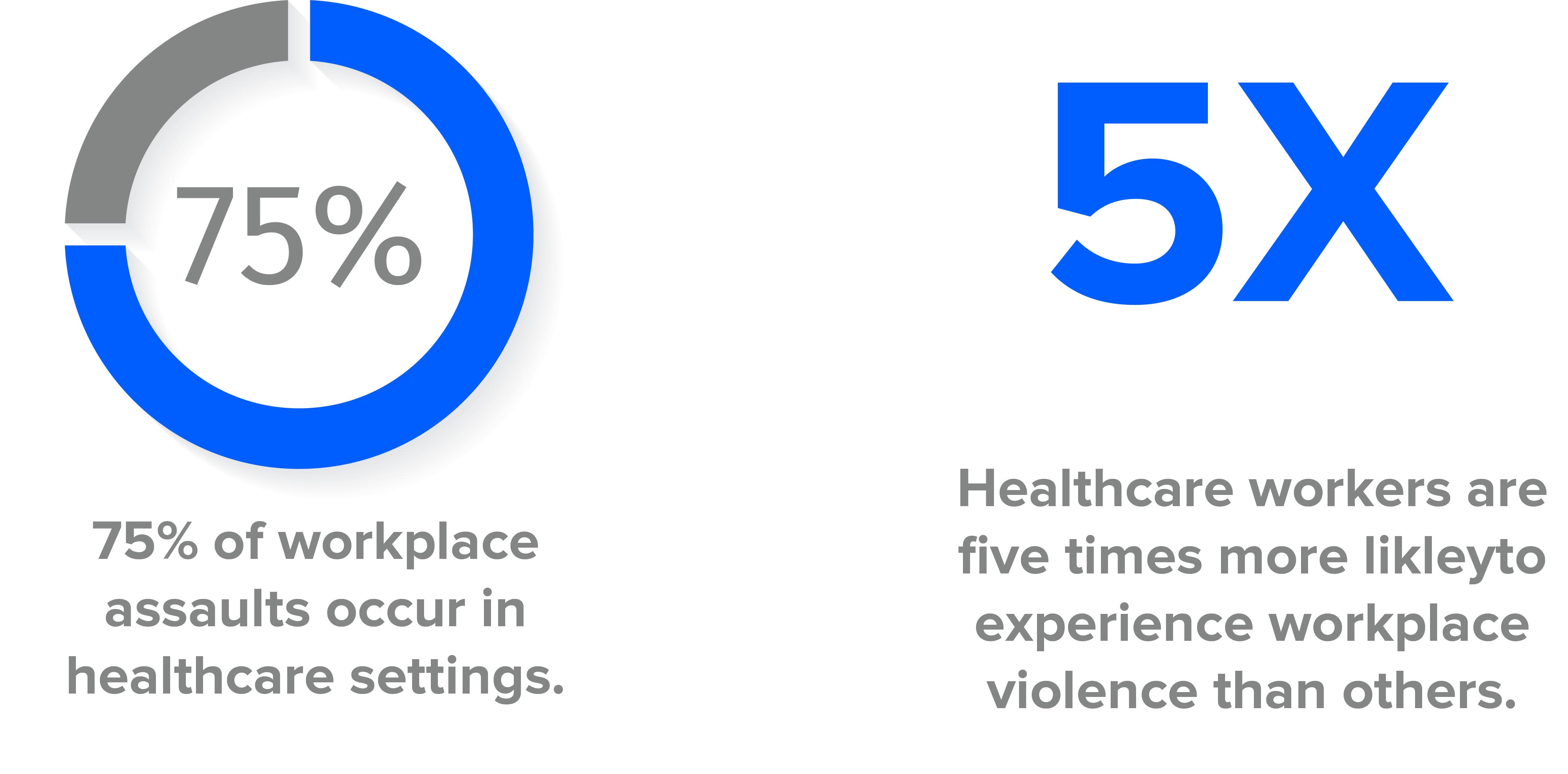Workplace violence can be physically and psychologically harmful to the personnel on duty. Over time, anxiety about the possibility of workplace violence—and the sense that one is not prepared for it—degrades the quality of life of healthcare workers and the quality of care for patients. MILO de-escalation training prioritizes physical safety and lays the groundwork for protecting psychological safety and overall wellness in the face of any threat, empowering teams to conduct their own in-person training course to improve de-escalation skills between shifts.
The National Institute for Occupational Safety and Health (NIOSH) classifies workplace violence into four basic types:
Type I involves criminal intent. In this type of workplace violence, perpetrators have no relationship with the healthcare setting or its employees.
Type II involves a customer, client, or patient. In this type, the individual has a relationship with the specific healthcare setting or provider and becomes violent while receiving services.
Type III violence is defined as an altercation between personnel and involves employees who attack or threaten other employees.
Type IV involves personal relationships and domestic violence. It includes individuals with interpersonal relationships with the intended target but no relationship to the particular setting.
According to NIOSH, Types II and III are the most common threats in hospitals or clinical settings.
Specific examples of escalating situations that potentially threaten safety in healthcare settings include:
- Persons trespassing on hospital property
- Persons experiencing homelessness
- Persons experiencing mental health crises (including suicidal ideation or behavior)
- Employees experiencing emotional trauma or displaying aggression
- Waiting area encounters
- Patient/staff interactions
- Family member(s) experiencing agitation or severe emotional stress
- Domestic disputes
- Co-worker and employer/employee altercations
MILO simulators offer specific scenarios designed to equip users with the effective de-escalation skills necessary for effective and safe conflict resolution. In addition to addressing conflict resolution and responses to workplace violence, MILO’s Mental Health Response scenarios have been instrumental in evaluating professionals’ ability to utilize a range of de-escalation techniques when assisting individuals experiencing aggressive behavior or having a mental health crisis.










